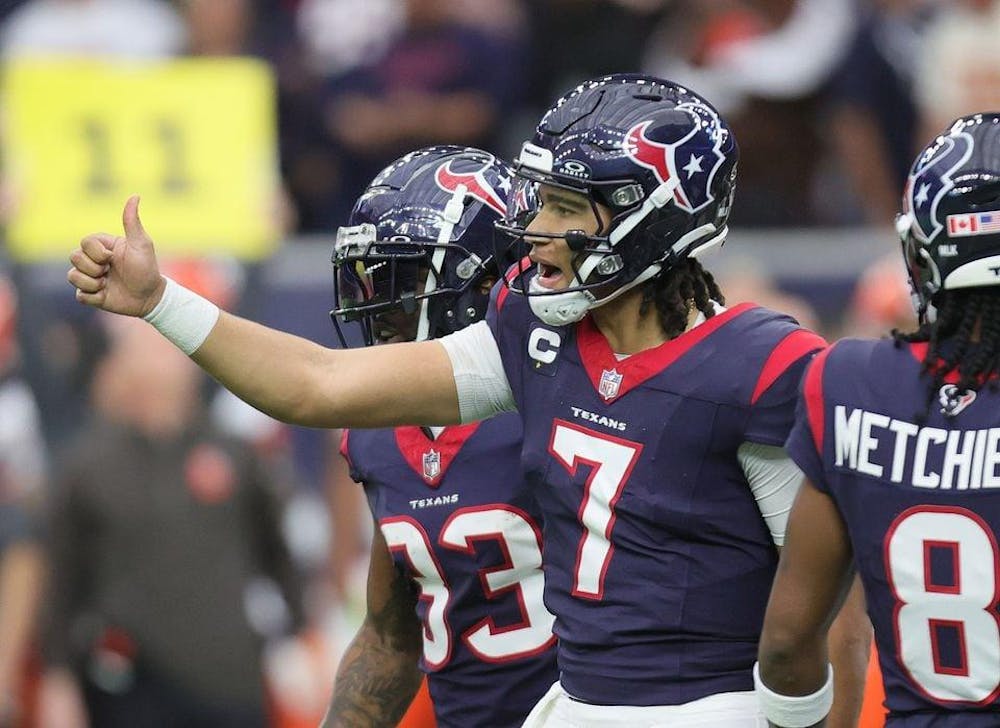In the ever-evolving landscape of the NFL, quarterback CJ Stroud's remarkable rookie season with the Houston Texans sparked a debate about the relevance of the S2 Cognition test in evaluating quarterback talent. Despite posting the lowest S2 score among 2023 quarterback prospects, Stroud's performance on the field and subsequent Offensive Rookie of the Year title may cast doubt on the test's significance.
The Texans' resurgence from a 3-13 regular season in 2022 to a 10-7 regular season record and a playoff appearance in 2023 is largely attributed to Stroud's stellar performance. Leading the team to a 45-14 victory over the Cleveland Browns in the Wild Card round showcased his ability to elevate a team and instill hope in a fan base desperately in need of it.
This optimism was especially crucial for Texans supporters, given the team's challenging journey over the last few years, where they struggled with a combined record of 11-38 from 2020 to 2022. Stroud's impact not only transformed the team's present but also provided a beacon of hope for a brighter future.
Statistically, Stroud's regular season performance was nothing short of impressive — 4,108 passing yards, a 63.9% completion rate, 23 touchdowns and a mere five interceptions. To put this into perspective, the three-time Super Bowl champion quarterback Patrick Mahomes finished with similar numbers.
However, what sets Stroud's narrative apart is his S2 Cognition test score: 18%, the lowest in the 2023 quarterback class. The S2 test, designed to measure game-speed cognitive abilities, has become a pivotal factor in the draft process, replacing the traditional Wonderlic test used from 1970 to 2022. It is heavily relied on for assessing quarterback draft picks or even finding a franchise quarterback. Stroud’s performance this season may turn the test’s reliability for scouts and general managers upside down.
Despite critics asserting that Stroud might struggle at the next level based on his low score, the Texans selected him with the second pick of the draft. Stroud responded to critics ahead of the draft on multiple occasions, asserting that he would prove them wrong.
“I’m not a test taker, I play football,” Stroud said two days prior to the 2023 draft. "At the end of the day, I don’t got nothing to prove to nobody. I’m not finna sit here and explain how I process football. The people who are making the picks know what I can do, so that’s all the matters to me.”
Stroud's success challenges the perception that a high cognitive test score is a prerequisite for excelling at the quarterback position. His belief in his skills, work ethic and football IQ sends a powerful message — sometimes the intangibles that can't be measured by a test are the ones that truly make a difference on the field.
"I have that confidence in myself,” Stroud said. “I don’t got nothing to prove to nobody man. At the end of the day, if you don’t trust and believe in me, all I can tell you is watch this."
Stroud's rookie season serves as a compelling case for reevaluating the importance of the test in predicting a quarterback's success. As the NFL continues to evolve, perhaps it's time to trust the eye test and on-field results as much as the numbers generated in a testing room. He may not have scored well on the test, but his outstanding football instincts speak for themselves. The narrative of his ascent stands as a testament to the potential limitations of relying solely on standardized tests in assessing quarterback prowess in the modern NFL.






